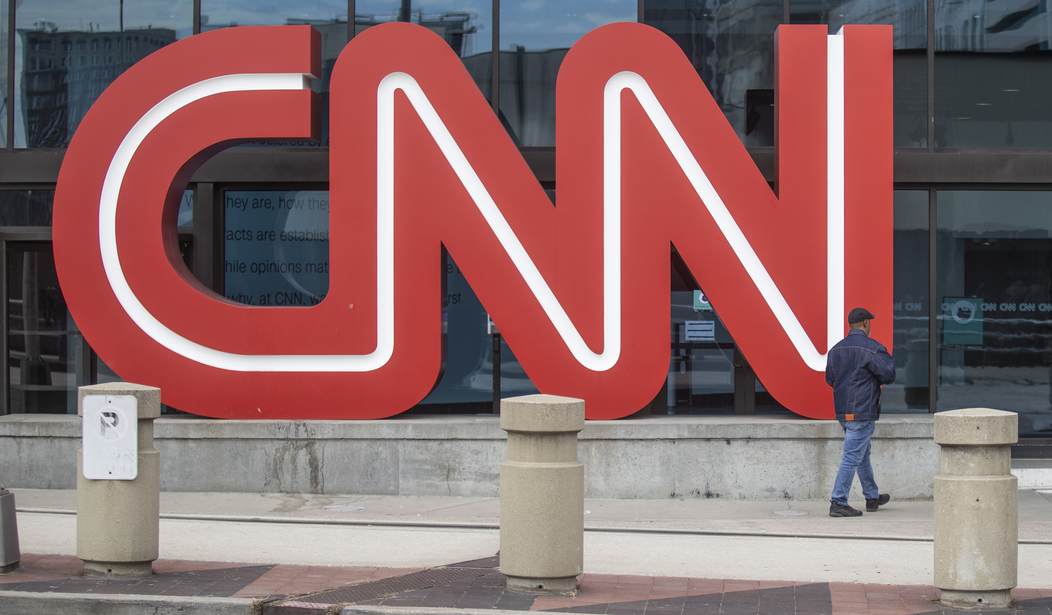There are some folks on CNN who sometimes seem to hit upon a little truth in their analysis.
One is data analyst Harry Enten, who has been reporting on the big problems with Joe Biden's campaign.
The other is legal analyst Elie Honig, who has not been shy in calling out the problems in the Manhattan DA Alvin Bragg's case against former President Donald Trump. That's particularly interesting since he used to be a colleague of Alvin Bragg's when they both worked for the U.S. Attorney's Office for the Southern District of New York, and he calls Bragg a friend.
Honig, in a fascinating article titled “Prosecutors Got Trump — But They Contorted the Law,” didn't hold back in the wake of the verdict about the problems in the case.
First, he made it clear he thought the problem didn't lay with the jury. He said that the DA's charges "push the outer boundaries of the law and due process." He said that was on the prosecutors and "the judge who let it play out as it did."
But just because the prosecution prevailed didn't make it any less an "ill-conceived, unjustified mess."
“But they won” is no defense to a strained, convoluted reach unless the goal is to 'win,' now, by any means necessary and worry about the credibility of the case and the fallout later."
Yikes. That's calling out the goal in very plain terms.
He noted some of the problems with the judge in the case and with Bragg.
The judge donated money — a tiny amount, $35, but in plain violation of a rule prohibiting New York judges from making political donations of any kind — to a pro-Biden, anti-Trump political operation, including funds that the judge earmarked for “resisting the Republican Party and Donald Trump’s radical right-wing legacy.” Would folks have been just fine with the judge staying on the case if he had donated a couple bucks to “Re-elect Donald Trump, MAGA forever!”? Absolutely not.
He explained how Bragg had touted his "Trump-hunting prowess," saying he'd "bizarrely (and falsely) boasted on the campaign trail, “It is a fact that I have sued Trump over 100 times."
Then he noted some of the problems with the charges.
The charges against Trump are obscure, and nearly entirely unprecedented. In fact, no state prosecutor — in New York, or Wyoming, or anywhere — has ever charged federal election laws as a direct or predicate state crime, against anyone, for anything. None. Ever. Even putting aside the specifics of election law, the Manhattan DA itself almost never brings any case in which falsification of business records is the only charge.
But since the misdemeanor charges were out of time because of the statute of limitations, the prosecution then decided to try to bootstrap them back to life.
So, to inflate the charges up to the lowest-level felony (Class E, on a scale of Class A through E) — and to electroshock them back to life within the longer felony statute of limitations — the DA alleged that the falsification of business records was committed “with intent to commit another crime.” Here, according to prosecutors, the “another crime” is a New York State election-law violation, which in turn incorporates three separate “unlawful means”: federal campaign crimes, tax crimes, and falsification of still more documents. Inexcusably, the DA refused to specify what those unlawful means actually were — and the judge declined to force them to pony up — until right before closing arguments. So much for the constitutional obligation to provide notice to the defendant of the accusations against him in advance of trial. (This, folks, is what indictments are for.)
In these key respects, the charges against Trump aren’t just unusual. They’re bespoke, seemingly crafted individually for the former president and nobody else.
Honig thought because of all the problems that Trump had a decent shot of a reversal on appeal and I think he's definitely right about that.
He wrote about how people say, "No one is above the law."
Indeed, Joe Biden posted that same thing, again pointedly trying to justify the case against Trump.
No one is above the law.
— Joe Biden (@JoeBiden) May 31, 2024
However, as Honig said in his article, "But it’s also meaningless pablum if we unquestioningly tolerate (or worse, celebrate) deviations from ordinary process and principle to get there."
And that was the problem in this case.
Related:
WATCH: Megyn Kelly Eviscerates Dems' Glee Over Trump Verdict, Warns They've Opened 'Pandora's box'














Join the conversation as a VIP Member